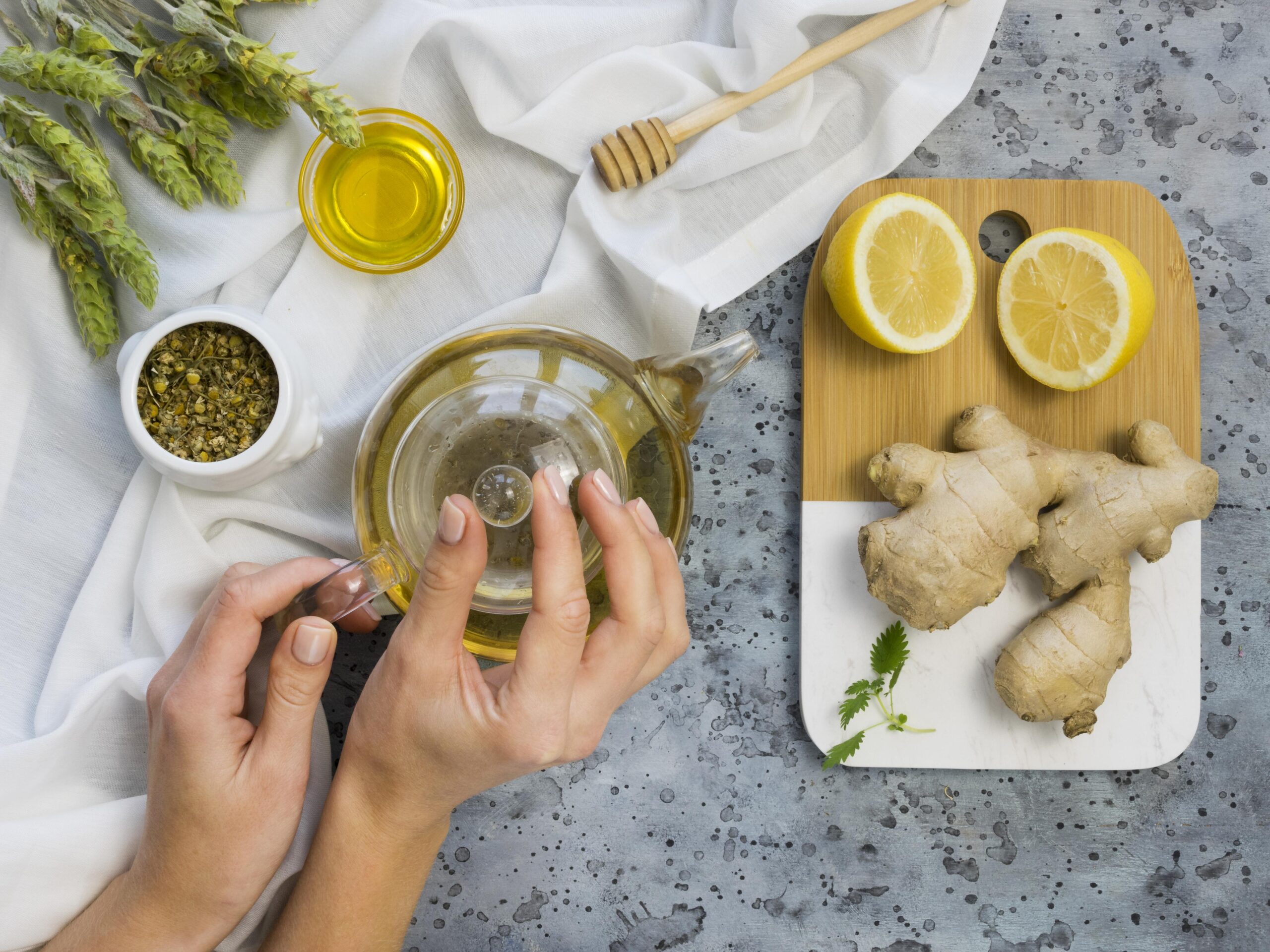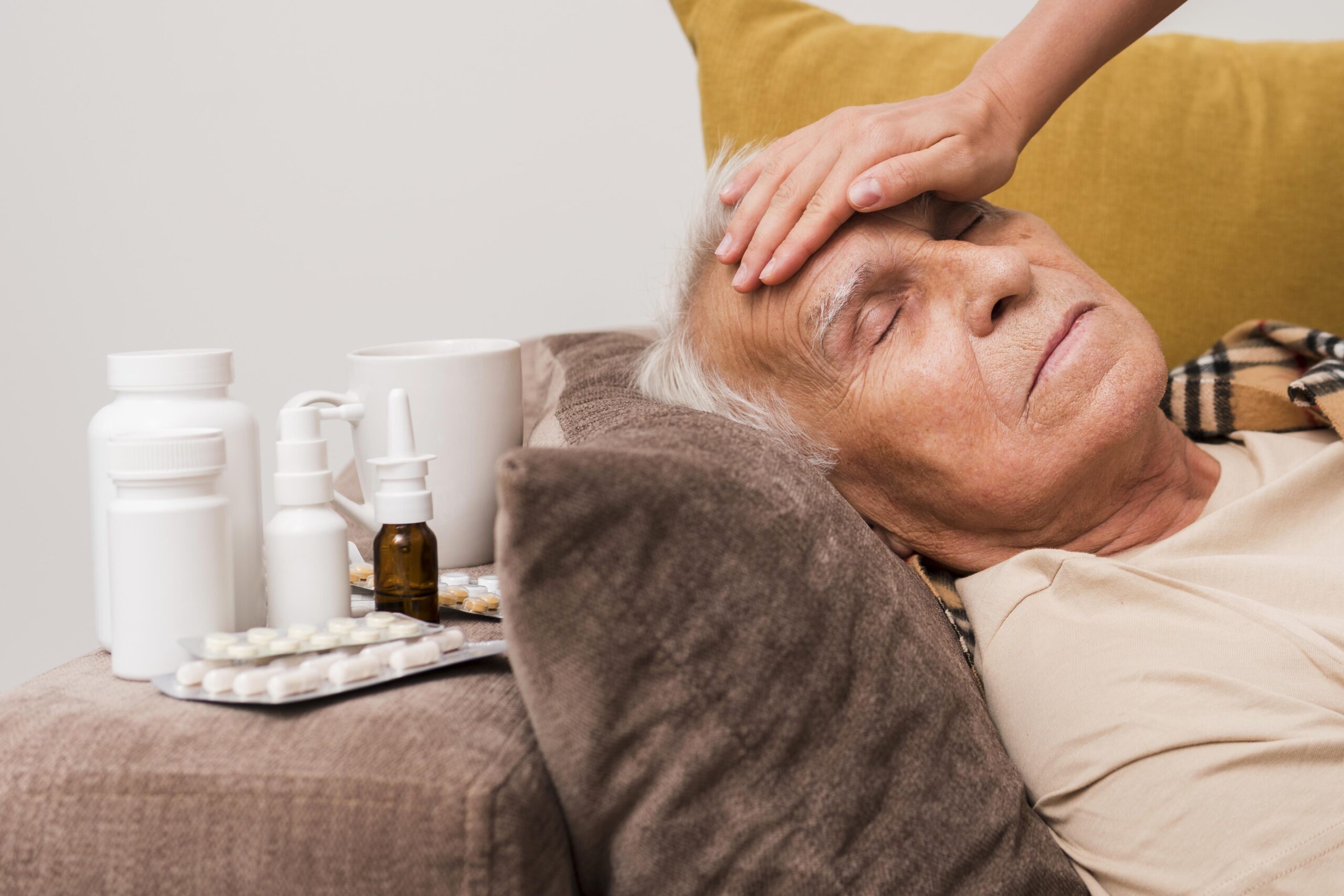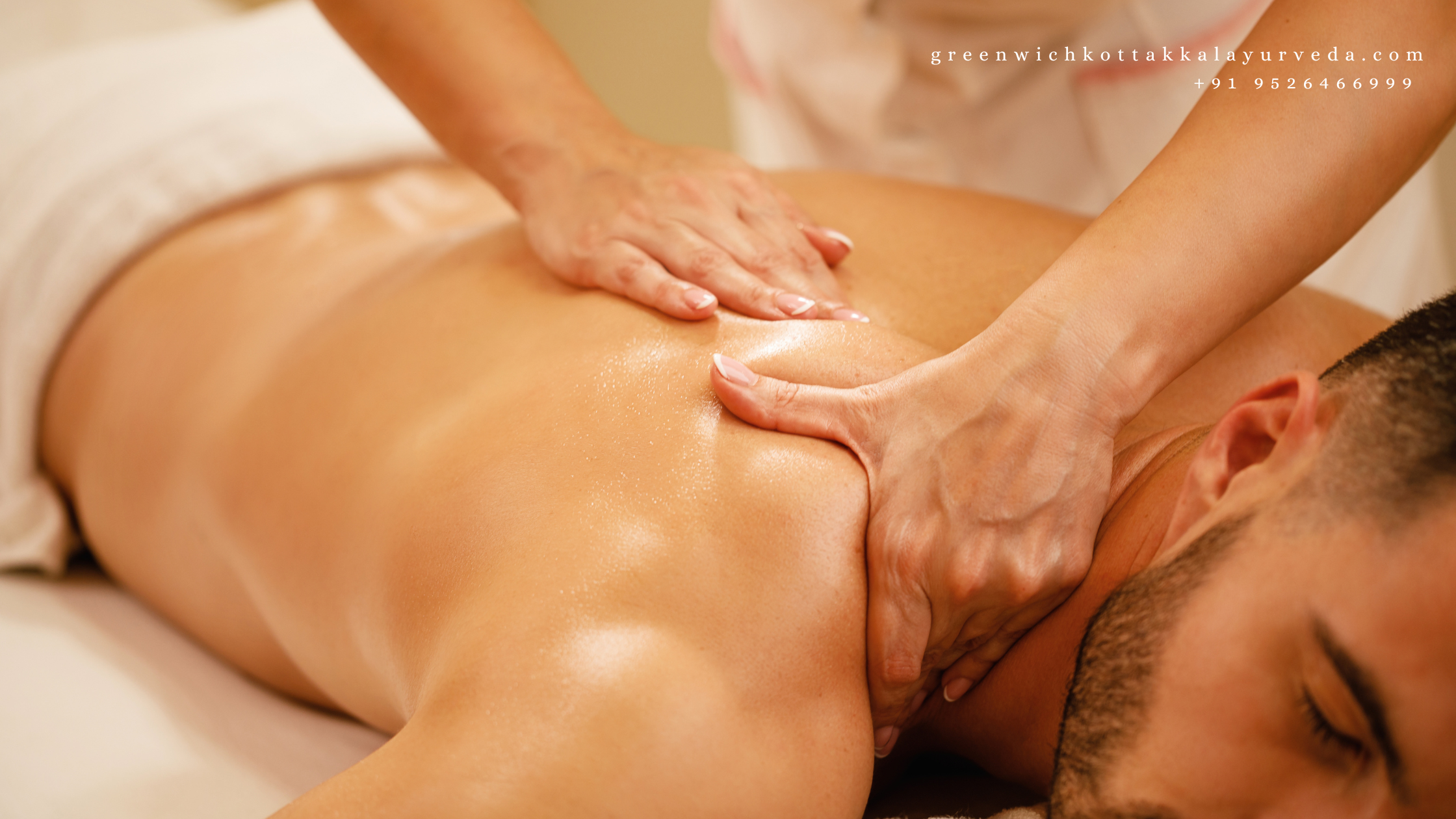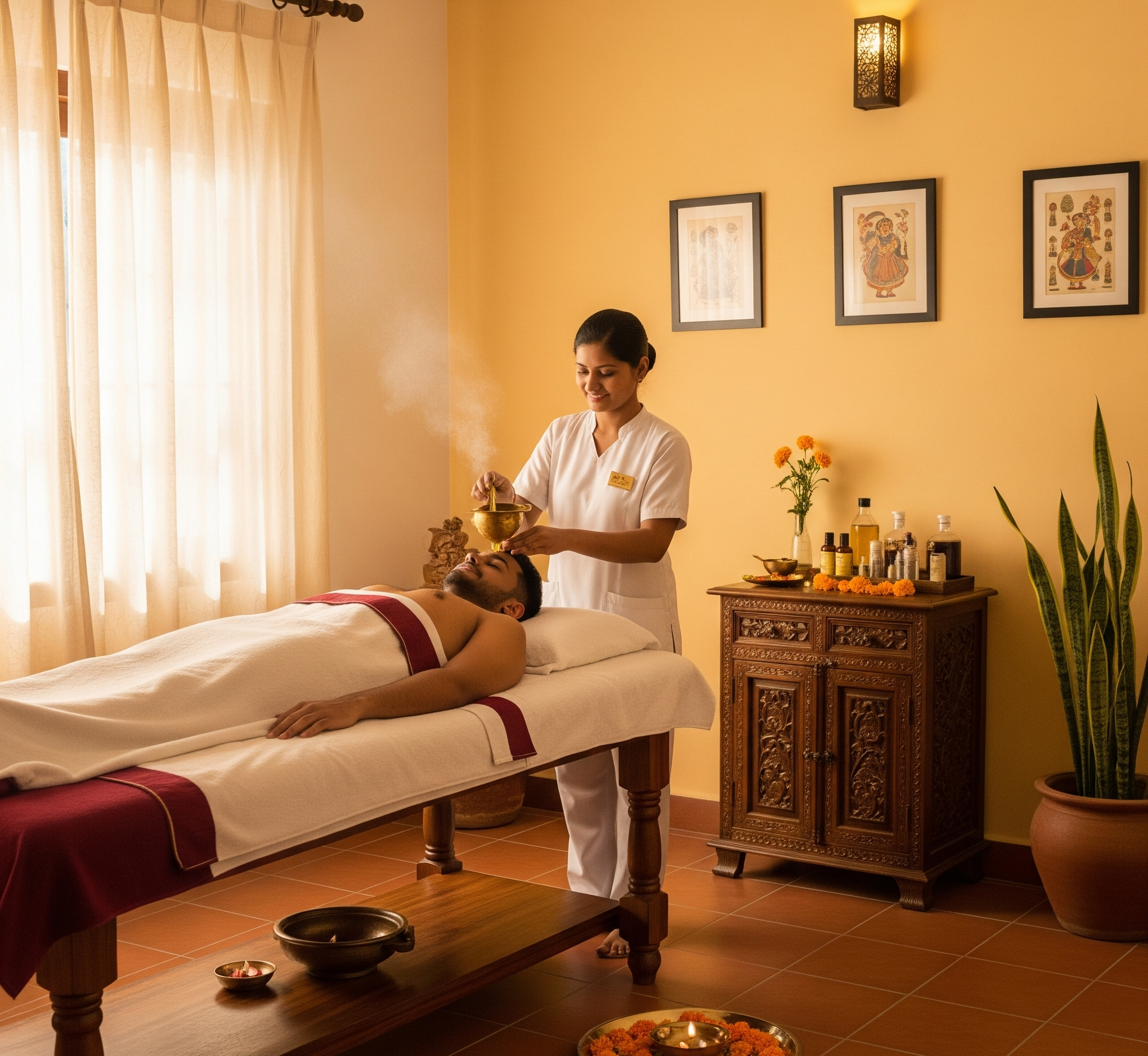 27 Sep 2025
27 Sep 2025
Parkinsons Disease Treatment
Parkinsons Disease Treatment (PD) is a progressive neurodegenerative disorder that affects movement, balance, and coordination. It is primarily caused by the degeneration of dopamine-producing neurons in the brain, leading to symptoms such as tremors, stiffness, slowness of movement, and postural instability.While modern medicine offers symptomatic relief through medications like Levodopa and surgical options such as Deep Brain Stimulation (DBS), these often come with long-term side effects. This has led many patients and caregivers to explore alternative options — particularly Parkinsons Disease treatment in Ayurveda, India’s ancient and holistic medical science.
Parkinsons Disease treatment in Ayurveda focuses on balancing the body’s energies, especially the Vata dosha, which is considered responsible for most neurological conditions. Unlike conventional medicine, Parkinsons Disease treatment in Ayurveda emphasizes the root cause, using personalized herbal formulations, detox therapies, and lifestyle corrections to restore balance.
Many individuals are turning to Parkinsons Disease treatment in Ayurveda not only for symptom relief but also to improve their overall quality of life through natural, side-effect-free healing methods. With its gentle and comprehensive approach, Parkinson’s Disease treatment in Ayurveda offers a ray of hope for long-term management and well-being.
Understanding Parkinsons Disease in Ayurveda
In Ayurveda, Parkinson’s is closely associated with a condition called “Kampavata”, where:
“Kampa” means tremor,
“Vata” refers to the air and ether elements, responsible for movement and nervous function.
An imbalance in Vata dosha is seen as the primary cause of symptoms akin to Parkinsons. This imbalance disrupts the coordination between the mind and body, leading to tremors, rigidity, and loss of motor control.
The Ayurvedic approach does not just aim to control symptoms but works to restore systemic balance, detoxify the body, and rejuvenate the nervous system.
Ayurvedic Treatment Modalities for Parkinsons Disease
Ayurveda offers a multi-faceted approach that includes internal medications, external therapies, detoxification (Panchakarma), diet, and lifestyle changes.
1. Herbal Medicines
Several Ayurvedic herbs have neuroprotective, antioxidant, and Vata-balancing properties. Commonly used herbs include:
Ashwagandha (Withania somnifera): Strengthens the nervous system and reduces stress.
Brahmi (Bacopa monnieri): Enhances brain function and memory.
Shankhpushpi (Convolvulus pluricaulis): Aids in calming the mind and improving cognition.
Mucuna pruriens (Kapikacchu): A natural source of L-DOPA, it helps improve dopamine levels.
Guduchi (Tinospora cordifolia): Rejuvenates brain cells and boosts immunity.
These herbs are often used in formulations tailored to the individual’s constitution (Prakriti) and disease stage.
2. Panchakarma Therapy (Detoxification)
Panchakarma is Ayurveda’s deep detoxification and rejuvenation program, particularly beneficial in neurological disorders.
Key therapies include:
Abhyanga (herbal oil massage): Nourishes and calms the nervous system.
Shirodhara (oil dripping on the forehead): Deeply relaxes the brain and reduces anxiety.
Basti (medicated enemas): Specifically indicated for Vata disorders, helping cleanse and balance Vata in the colon.
Nasya (nasal oil administration): Supports brain detox and enhances clarity of mind.
3. Diet & Lifestyle Recommendations
Favor warm, oily, and easily digestible foods to pacify Vata.
Avoid dry, cold, or processed foods that aggravate Vata.
Follow a regular routine, with adequate rest and low-stress environments.
Gentle yoga, meditation, and pranayama (breathing exercises) improve coordination, focus, and emotional balance.
Ayurvedic Support Beyond Physical Symptoms
Parkinsons is not just a physical disorder — it affects emotions, cognition, and quality of life. Ayurveda emphasizes the connection between body, mind, and spirit. Supporting emotional health through practices like:
Mantra chanting
Spiritual counseling
Sattvic (pure) lifestyle choices
can bring mental peace and resilience to deal with chronic conditions.
Clinical Evidence & Caution
Research into Ayurvedic herbs like Mucuna pruriens shows promise in improving motor functions due to its natural L-DOPA content. However, Ayurvedic treatment should always be guided by a qualified Ayurvedic physician, especially when combining with modern medicines, to avoid interactions.
Conclusion
Ayurveda offers a natural and holistic approach to managing Parkinsons Disease by balancing the body and calming the mind. At Greenwich Ayurveda Hospital, we provide personalized Ayurvedic treatments that aim to improve quality of life and bring lasting relief through time-tested therapies and expert care.
If you or a loved one is living with Parkinsons, exploring Greenwich Ayurveda Hospital care could be a life-enhancing journey—rooted in nature, balance, and self-healing.
BY: admin
Uncategorized
COMMENTS: No Comments
 26 Sep 2025
26 Sep 2025
Ayurvedic Stroke Treatment
Stroke treatment, known as Pakshaghata in Ayurveda, focuses on managing the sudden loss of function in one part of the body, usually caused by disrupted blood flow to the brain. In Ayurveda, this condition is classified as a Vata Vyadhi, a disorder resulting from the aggravation of the Vata dosha, which controls movement, nerve impulses, and cellular communication. Ayurvedic stroke treatment addresses not just the neurological symptoms but also aims at correcting systemic imbalances. It emphasizes both physical rehabilitation and energetic rebalancing, making stroke treatment a holistic and restorative process in Ayurvedic medicine.
Understanding Stroke in Ayurveda
In Ayurvedic philosophy, health is a balance of the three doshas—Vata, Pitta, and Kapha. Vata, being the principle of movement, is closely associated with the nervous system. When Vata becomes disturbed, it can lead to a breakdown in nerve coordination and muscular control, manifesting as paralysis or weakness on one side of the body. Pakshaghata literally means “affliction on one side”, which aligns closely with the clinical presentation of a stroke. The approach in Ayurveda is to pacify the aggravated Vata dosha, detoxify the body, nourish damaged tissues, and restore the body’s natural healing capacity.
Panchakarma Therapies: Detox and Restoration
A central component of Ayurvedic stroke treatment is Panchakarma, a set of five therapeutic procedures designed to cleanse and rejuvenate the body. These treatments are tailored to the individual’s constitution (Prakriti), current doshic imbalances (Vikriti), and the stage of recovery.
Abhyanga, or full-body oil massage with medicated oils, helps improve circulation, reduce muscle stiffness, and strengthen the limbs. Oils like Mahanarayan Tailam or Dhanwantharam Tailam are commonly used to nourish nerves and tissues. This is followed by Swedana, a steam therapy that opens up the channels (Srotas) and promotes flexibility.
One of the most effective therapies for stroke-related Vata imbalance is Basti, or medicated enema therapy. Basti helps deliver herbal decoctions and oils directly into the colon, the seat of Vata, facilitating deep detox and nourishment of the nervous system. Nasya, or nasal therapy, is also often administered to directly influence the brain and central nervous system. Finally, Shirodhara, which involves the gentle pouring of warm oil on the forehead, helps soothe the mind, reduce stress, and support mental clarity.
Herbal Medicines and Rasayanas
Ayurvedic physicians may prescribe a variety of herbs and polyherbal formulations to support neurological recovery. Ashwagandha is a powerful adaptogen that enhances nerve regeneration, strength, and immunity. Brahmi and Shankhpushpi are revered brain tonics that improve cognition, memory, and mood. Vacha is traditionally used to improve speech and help overcome issues such as aphasia that may result from stroke.
Guduchi (Tinospora cordifolia) is often included for its immunomodulatory and anti-inflammatory properties. Rasayana therapies, which are Ayurvedic rejuvenation treatments, play a crucial role in post-stroke recovery by revitalizing the body’s tissues. Classical preparations like Chyawanprash, Ashwagandharishta, and Brahma Rasayana are sometimes recommended to improve vitality and long-term recovery.
Diet and Lifestyle Management
Diet plays an essential role in Ayurvedic healing. Post-stroke patients are advised to follow a Vata-pacifying diet, which includes warm, soft, and easily digestible foods. Ghee, cooked grains like rice and wheat, stewed fruits, and nourishing soups made with moong dal and vegetables are commonly recommended. Cold, dry, and processed foods are discouraged, as they tend to aggravate Vata.
In terms of lifestyle, stroke patients are advised to follow a regular daily routine, get adequate rest, and avoid stress and excessive exertion. Gentle yoga, pranayama (breathing exercises), and meditation may also be introduced once the patient gains some strength. These practices help improve mental clarity, emotional stability, and overall well-being, which are essential for recovery.
Benefits of Ayurvedic Stroke Rehabilitation
Ayurvedic therapies can provide significant support in the rehabilitation phase of stroke recovery. These therapies aim to improve muscle strength, joint mobility, speech, coordination, and mental clarity. With consistent treatment, patients may experience improvements in mobility, energy levels, and quality of life. The holistic approach of Ayurveda supports not just physical recovery but also mental and emotional healing—areas often overlooked in conventional rehabilitation programs.
Precautions and Integration with Modern Medicine
It is important to note that Ayurveda is not a replacement for emergency stroke care. Immediate hospitalization and medical intervention are essential during the acute phase of a stroke. Ayurvedic treatments are most effective in the recovery and rehabilitation phase, once the patient is stable. Always consult a qualified neurologist and an experienced Ayurvedic physician before beginning any treatment.
Ayurvedic stroke care is best implemented in an integrated medical setup, where conventional medicine is used for diagnosis and emergency management, and Ayurveda is used for long-term care and recovery. Greenwich Ayurveda hospital in Kerala specialize in stroke rehabilitation and have shown encouraging results with combined therapies.
Conclusion
Greenwich Ayurveda Hospital offers a time-tested, holistic approach to post-stroke care, focusing on restoring balance in the body, calming the nervous system, and promoting overall wellness. With therapies like Panchakarma, herbal medicines, and supportive diet and lifestyle practices, Ayurveda can help stroke patients regain mobility, mental clarity, and independence. However, it should always be used under the supervision of qualified professionals, and preferably in combination with modern medical care for optimal results in stroke treatment
BY: admin
Uncategorized
COMMENTS: No Comments
 25 Sep 2025
25 Sep 2025
Benefits of Ayurveda Treatment
In today’s fast-paced world, where stress, poor diet, and sedentary lifestyles have become the norm, many people are seeking natural ways to restore balance and health. One of the most effective and time-tested methods of holistic healing is Ayurveda — a 5,000-year-old system of medicine that originated in India. The benefits of Ayurveda treatment are numerous, offering a natural path to physical, mental, and emotional well-being by addressing the root cause of illness rather than just the symptoms.
Ayurveda, which translates to “the science of life,” focuses on treating the root cause of diseases rather than just the symptoms. It offers personalized treatment based on the individual’s body constitution (dosha), lifestyle, and environment.
In this blog, we’ll explore the key benefits of Ayurveda treatment and why more people around the world are turning to this ancient wisdom for healing and wellness.
1. Natural and Holistic Healing
Ayurvedic treatments are derived from nature — using herbs, oils, minerals, and diet — to heal the body from within. Unlike synthetic drugs that may cause side effects, Ayurveda focuses on supporting the body’s natural healing processes.
Ayurveda treats the mind, body, and spirit as interconnected. This holistic approach ensures a more complete and sustainable path to health.
2. Personalized Medicine (Dosha-Based)
One of the most unique aspects of Ayurveda is its personalized approach. It identifies three primary body types or doshas: Vata, Pitta, and Kapha. Everyone has a unique combination of these doshas, which affects their physical, emotional, and mental characteristics.
Treatment plans — including diet, herbal remedies, yoga, and lifestyle changes — are tailored according to the individual’s dosha balance, making Ayurveda highly effective for long-term health.
3. Improved Digestion and Metabolism
According to Ayurveda, good digestion (Agni) is the key to good health. Ayurvedic therapies and diets help in balancing digestive fire, reducing bloating, constipation, and acidity, and improving nutrient absorption.
Simple lifestyle changes like eating mindfully, avoiding incompatible food combinations, and using digestive herbs like ginger, cumin, and fennel can make a significant difference.
4. Detoxification and Cleansing
Toxins (ama) accumulate in the body due to poor diet, pollution, and stress. Ayurveda offers powerful detoxification therapies like Panchakarma — a five-step purification process to eliminate toxins and restore balance.
Regular detox not only boosts immunity but also revitalizes the body, promotes clarity of mind, and slows down aging.
5. Stress Reduction and Mental Clarity
Ayurveda emphasizes mental well-being as much as physical health. Treatments often include meditation, pranayama (breathing techniques), yoga, and herbal remedies that calm the nervous system and enhance mental focus.
Adaptogenic herbs like Ashwagandha and Brahmi are widely used to reduce anxiety, improve sleep, and support emotional balance.
6. Strengthened Immunity
A strong immune system is crucial for preventing diseases. Ayurvedic practices, such as seasonal routines, immunity-boosting herbs (like Tulsi, Ayla, and Turmeric), and daily oil massages (Abhyanga), help enhance your body’s defense mechanisms naturally.
7. Chronic Disease Management
Ayurveda has shown promising results in managing chronic conditions such as:
Arthritis and joint pain
Diabetes
Skin disorders (eczema, psoriasis)
Asthma and allergies
PCOS and menstrual irregularities
Migraine and digestive disorders
It focuses on long-term relief by correcting lifestyle and dietary imbalances rather than offering temporary fixes.
8. Anti-Aging and Skin Health
Ayurveda offers natural ways to maintain youthful skin and hair. Herbal oils, face packs, and dietary guidelines help maintain skin elasticity, glow, and prevent premature aging. Rasayana therapy, one of the eight branches of Ayurveda, is specifically focused on rejuvenation and longevity.
Conclusion: Ayurveda Is More Than Just Treatment — It’s a Way of Life
Whether you’re seeking relief from a health condition or simply want to live a more balanced and conscious life, Ayurveda has something to offer everyone. Its time-tested wisdom and natural approach make it one of the most effective wellness systems in the world today.
By incorporating Ayurveda into your daily routine — even in small ways — you can experience profound benefits for your body, mind, and spirit.
BY: admin
Uncategorized
COMMENTS: No Comments
 24 Sep 2025
24 Sep 2025
Ayurvedic Treatment in Kerala: A Holistic Path to Relief
Nestled in the heart of Ayurveda’s birthplace, Greenwich Ayurveda Centre in Kottakkal stands out with its authentic therapeutic offerings and modern amenities, creating a nurturing sanctuary for holistic healing as a best ayurveda Treatments in Kerala.
Signature Therapies & Wellness Programs
Greenwich follows a personalized and holistic approach. Their core treatments include:
- Panchakarma Therapy – A five-step detoxification designed to purify the body, mind, and spirit, tailored to individual needs.
- Abhyanga (Ayurvedic Massage) – Warm herbal oil massages that enhance circulation, reduce stress, and promote balance.
- Shirodhara – A calming oil pour on the forehead, ideal for stress relief, anxiety, and insomnia.
- Nasya (Nasal Therapy) – Administering herbal oils via the nose for sinus, migraine, and respiratory relief.
- Kizhi (Herbal Poultice Therapy) – Warm herbal poultices that ease inflammation, muscle tension, and pain.
They also offer comprehensive wellness programs:
- Stress Management: Blending Shirodhara, meditation, and herbal therapy to foster deep relaxation.
- Weight Management: Customized combination of diet, exercise, and Ayurvedic treatments for sustainable results.
- Rejuvenation Program: Revival of vitality through a blend of Panchakarma, Abhyanga, and herbal supplements.
Specialized Care for Chronic Conditions
The centre also houses dedicated treatments for complex conditions:
- Arthritis Management: Personalized care plans including therapies like Basti (medicated enema), Pizhichil (oil bath), Navarakizhi (rice bolus massage), Virechana, and Abhyanga to reduce inflammation and improve joint mobility.
- Other Conditions: The blog highlights additional illnesses treated at the centre, such as Parkinson’s disease, psoriasis, multiple sclerosis, and more, with tailored Ayurveda-based protocols.
What Sets Greenwich Apart
- Authenticity with Modern Comfort: While deeply rooted in traditional practices, the centre boasts well-equipped therapy rooms and serene settings
- Highly Skilled Team: Ayurvedic physicians and therapists craft individualized treatment plans matching one’s constitution and health needs
- Holistic Emphasis: Beyond therapies, the department emphasizes lifestyle, dietary guidance, and ongoing patient well-being .
Greenwich Ayurveda Centre in Kottakkal offers a beautifully balanced blend of age-old Ayurveda and modern-day comfort. If you’re seeking a truly personalized, holistic wellness experience, especially for chronic or stress-related conditions, Greenwich offers programs you can trust. we welcome you to experiance best Ayurveda Treatments in Kerala.
BY: admin
Uncategorized
COMMENTS: No Comments
 18 Sep 2025
18 Sep 2025
Best Ayurveda Hospitals in Kerala: A Complete Guide
Kerala, often called God’s Own Country, is globally renowned for its rich tradition of Ayurveda. For centuries, this southern Indian state has preserved the science of holistic healing through herbal remedies, panchakarma therapies, and rejuvenation programs. Today, medical tourists from across the world travel to Kerala in search of authentic Ayurvedic treatments. If you are planning your wellness journey, choosing the best Ayurveda hospitals in Kerala is the first and most important step.
This article highlights the leading Ayurveda hospitals in Kerala, what makes them unique, and how to select the right one for your needs.
Why Choose Ayurveda in Kerala?
Kerala is considered the birthplace of Ayurveda in India. Here’s why the state stands out:
Authentic Practice: Kerala has kept Ayurveda free from excessive commercialization, preserving its roots.
Qualified Experts: Most hospitals are run by families with generations of Ayurvedic doctors (Vaidyas).
Serene Environment: Healing is enhanced by Kerala’s natural beauty — beaches, backwaters, and lush greenery.
Government Support: Kerala promotes Ayurveda as part of its official healthcare and tourism policies.
Factors to Consider Before Selecting an Ayurveda Hospital
When searching for the best Ayurveda hospitals in Kerala, look for:
Accreditation – NABH or government recognition.
Qualified Doctors – Licensed Ayurvedic physicians with years of experience.
Range of Treatments – Panchakarma, rejuvenation therapy, chronic illness management.
Facilities & Accommodation – Comfortable rooms, hygienic kitchens, and peaceful surroundings.
Patient Reviews – Real testimonials from past patients.
Top 7 Best Ayurveda Hospitals in Kerala
- Arya Vaidya Sala, Kottakkal
One of the oldest and most respected names in Ayurveda, Arya Vaidya Sala (AVS) in Kottakkal has been serving patients for more than 100 years. It is known for:
Classical Ayurvedic treatments
In-house production of herbal medicines
Large network of branches across India
Why it’s the best: Authenticity and a trusted legacy.
- Somatheeram Ayurveda Village, Thiruvananthapuram
Often described as the world’s first Ayurvedic resort, Somatheeram combines holistic treatments with a rejuvenating beachside experience. It offers:
Panchakarma therapy
Yoga and meditation sessions
Ayurvedic diet programs
Why it’s the best: Perfect for international medical tourists seeking healing and relaxation.
- Parathuvayalil Ayurveda Hospital, Kochi
Specialized in orthopaedic and musculoskeletal treatments, Parathuvayalil is NABH-accredited and run by a family of Ayurvedic doctors. Known for:
Marma Chikitsa (vital point therapy)
Chronic pain management
Integration of traditional and modern diagnostics
Why it’s the best: Excellence in bone, joint, and spine care.
- Punarnava Ayurveda Hospital, Kochi
Punarnava offers holistic therapies for chronic illnesses and lifestyle disorders. The hospital has multiple branches and international recognition.
Customized treatment plans
Wellness programs for detox and stress relief
Experienced team of therapists
Why it’s the best: Focus on lifestyle diseases and patient-centric care.
- Malar Ayurveda Hospital & Research Centre (MAHAR), Calicut
MAHAR is a reputed Ayurveda centre combining clinical care with research. It offers:
Treatment for neurological disorders
Ayurveda-based rehabilitation
Large inpatient facilities
Why it’s the best: Combines traditional healing with modern medical research.
- Samwarthika Ayurveda Hospital, Ernakulam
Samwarthika is NABH-accredited and has earned a strong reputation for authentic Ayurvedic practices.
Comprehensive panchakarma therapies
Skilled physicians and therapists
Modern facilities with traditional ethos
Why it’s the best: Trusted by both locals and international patients.
- Vaidya Healthcare, Kerala
Known for its patient-friendly approach, Vaidya Healthcare provides high-quality Ayurveda treatments and accepts health insurance for certain therapies.
Focus on chronic illness management
Panchakarma detox programs
Modern amenities with Ayurvedic authenticity
Why it’s the best: Blend of Ayurveda with patient safety and global healthcare standards.
Benefits of Choosing Kerala for Ayurveda
Long-term relief from chronic conditions
Non-invasive, natural healing methods
Mental relaxation through yoga, meditation, and diet
Affordable compared to Western wellness clinics
Conclusion
Whether you are looking for rejuvenation, stress relief, or treatment for chronic health issues, Kerala offers some of the best Ayurveda hospitals in India. Institutions like Arya Vaidya Sala, Somatheeram, and Parathuvayalil continue to uphold the purity of this ancient science.
When choosing the best Ayurveda hospitals in Kerala, always consider accreditation, authenticity, and reviews. With the right choice, you can experience healing that goes beyond the body, touching the mind and soul.
BY: admin
Uncategorized
COMMENTS: No Comments
